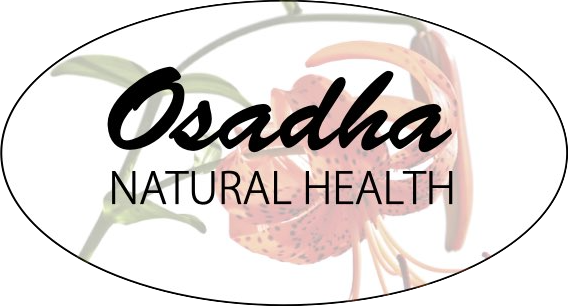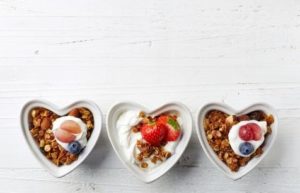Ever notice how certain foods make you cranky? Or sad? Or tired? How does that work, anyway?
Foods that our body doesn’t deal well with can actually impact the brain! Such foods cause inflammation in the gut. These inflammatory signals can then spread to other parts of the body, including the brain. Certain foods may also mess with mood through effects on the critters (bacteria and yeasts) that live in our gut. In response to our diet, they make chemicals that interact with our brain and other parts of the nervous system. Dysbiosis (an imbalance in our gut microbes) and small intestinal bacterial overgrowth (SIBO, when bacteria are living where they aren’t supposed to be) both have been linked with mood, as has leaky gut. Along these lines, a placebo-controlled trial found that supplementation with certain probiotics (Lactobacillus and Bifidobacterium) reduced feelings of anxiety and distress in the folks being studied.
In fact, issues in the gut are being proposed as a significant factor in the development of such neurological disorders as Parkinson’s Disease and dementia. The focus is on what’s called the “gut-brain axis,” a two way street where the brain influences the gut and the gut and its resident critters talk to the brain. It’s become a hot topic in research. But we can work in a low-tech way to heal our gut and, thereby, lend some support to the brain.
Here are some steps you can take to start supporting a healthy gut-brain axis.
1. Try an Elimination-Provocation Diet
A good place to start in healing the gut and reducing its potential effects on your mood is an elimination-provocation diet. This is the most reliable way to pinpoint those foods that your body and mind don’t deal well with. Avoiding foods that are problematic for you is key for allowing the gut to heal and for keeping the microbiome balanced and happy. Even once finished with the elimination-provocation diet, you want to do your best to eat a clean, whole foods-based diet with plenty of leafy greens and other colorful veggies and fruits.
This approach allowed me to identify two food groups that trigger feelings of anger and sadness in me within about 24 hours of eating them (pasta/bread and dairy).
2. Improve Digestive Function
Consider digestive bitters during and after the elimination diet to improve food breakdown and nutrient assimilation. Better digestion means less inflammation in the gut because there will be fewer partially digested food bits triggering the immune system.
While not everyone needs bitters, for many folks they may be quite helpful. If you know you tend to run hot, bitters for you could be dandelion root or leaf or burdock root. These are “cold” herbs, energetically speaking, so even though they stoke the digestive fire, they have overall cooling effects on the body. Spike either dandelion or burdock with a small amount of warming aromatics like ginger or cardamom for balance and to reduce gas and bloating.
For you colder folks, a warming bitter like angelica or turmeric may do the trick. Bitters are best used a half hour to right before eating, though in some cultures, bitter foods are actually eaten after the meal. Bitter foods such as cacao, dark leafy greens (e.g., arugula, dandelion, radicchio, kale, collards, cabbage, etc.) and citrus pulp/peel are also effective. If you don’t know whether you run hot or cold or are somewhere in the middle, any of these bitters should be fine and you can switch them up to try different ones.
3. Incorporate Gut Healing Herbs & Supplements
Keep in mind that it takes multiple months to heal the gut and that herbs and supplements will only be helpful in the context of a good, whole foods-based diet.
- Probiotics and fermented foods. Especially if you’ve been treated with one or more rounds of antibiotics, you should try probiotics and fermented foods. Look up independent brand reviews for probiotics; many out there are not good quality. Fermented foods such as full fat yogurt with active cultures, kefir, kraut, and kimchi may be helpful depending on what’s going on in your gut. For the occasional person where they worsen symptoms, simply stop using them.
- Gut healing vitamins and minerals. These include vitamin D, vitamin E, zinc, and selenium. Take according to manufacturer’s recommendations if you choose to use any of these and remember that more isn’t better. In other words, don’t go over the recommended dose.)
- Herbal support. Some great herbs that help support gut health and healing include plantain leaf (Plantago species), violet leaf and flower (Viola species), and calendula flowers (Calendula officinalis). I like them freshly ground into a powder and blended together. Consider a few teaspoons daily mixed with yogurt, unsweetened applesauce, in a smoothie, in soup, or simply in water.
Take care of your gut and your brain may thank you!
~~~
Content © Dr. Anna Marija Helt, Osadha Natural Health, LLC. Permission to republish any of the articles or videos in full or in part online or in print must be granted by the author in writing.
The articles and videos on this website for educational purposes only & have not been evaluated by the Food and Drug Administration. This information is not intended to diagnose, treat, cure, or prevent any disease or to substitute for advice from a licensed healthcare provider.

